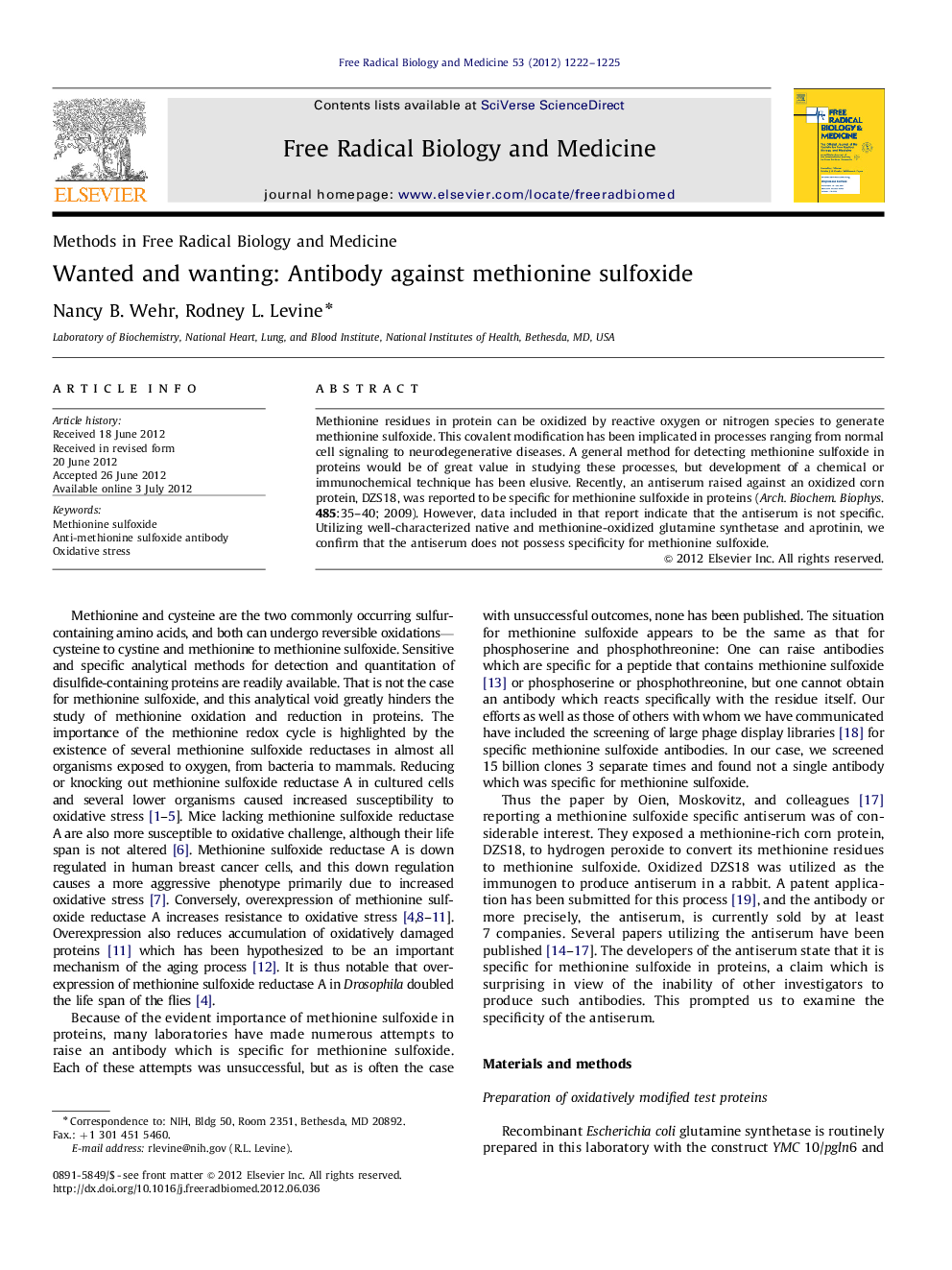| Article ID | Journal | Published Year | Pages | File Type |
|---|---|---|---|---|
| 1908642 | Free Radical Biology and Medicine | 2012 | 4 Pages |
Methionine residues in protein can be oxidized by reactive oxygen or nitrogen species to generate methionine sulfoxide. This covalent modification has been implicated in processes ranging from normal cell signaling to neurodegenerative diseases. A general method for detecting methionine sulfoxide in proteins would be of great value in studying these processes, but development of a chemical or immunochemical technique has been elusive. Recently, an antiserum raised against an oxidized corn protein, DZS18, was reported to be specific for methionine sulfoxide in proteins (Arch. Biochem. Biophys. 485:35–40; 2009). However, data included in that report indicate that the antiserum is not specific. Utilizing well-characterized native and methionine-oxidized glutamine synthetase and aprotinin, we confirm that the antiserum does not possess specificity for methionine sulfoxide.
► Methionine oxidation is an important posttranslational modification. ► Lack of assays for methionine sulfoxide in proteins hinders the field. ► An antiserum claiming specificity for methionine sulfoxide was recently reported. ► The report actually shows that the antiserum lacks the claimed specificity. ► We confirm that the antiserum is not specific for methionine sulfoxide.
